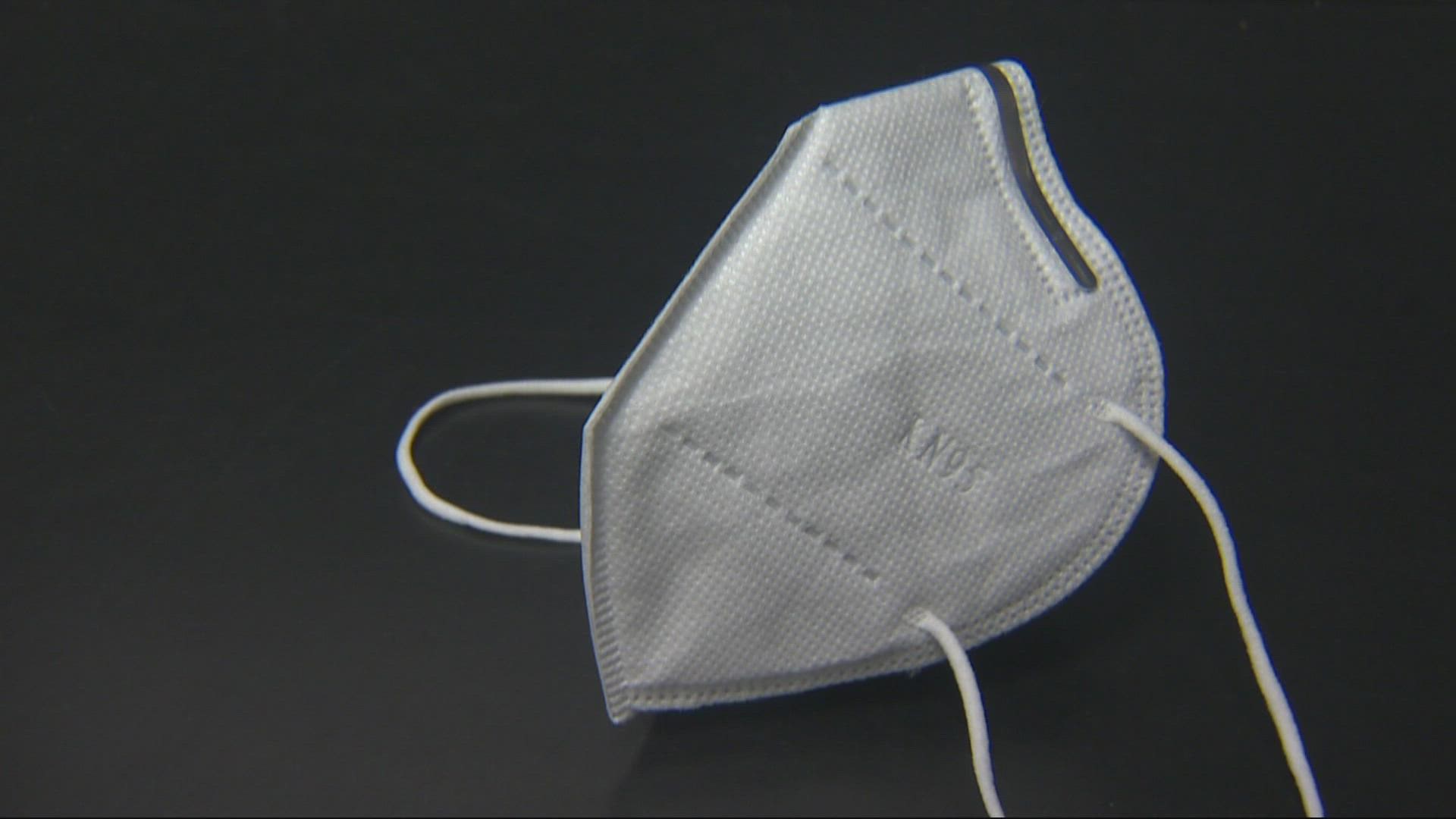PORTLAND, Ore. — As cases of the omicron variant of COVID-19 surge, state health leaders are asking Oregonians to help stop the spread by taking safety precautions like physical distancing and wearing a mask.
KGW asked Dr. Richard Corsi, an internationally recognized expert on indoor air quality, about the best ways to protect one another. Corsi said cloth masks are not the right ones to wear.
"When I see these gaping holes around the nose or somebody wearing their masks... with these giant holes, they're almost doing nothing," said Corsi.
Corsi has been researching how coronavirus travels through the air since the pandemic started. Like all COVID-19 variants, omicron is an airborne virus.
"The vaccination is one part, but the other part is doing everything we can to reduce the amount we inhale," Corsi said. "That means wearing higher-quality masks than people have been asked to wear to this point."
Corsi recommends people ditch cloth masks and wear only N-95 or KN-95 masks in environments where there is a lot of people.
"I have no problem wearing an N-95 mask for eight hours in a workday without ever taking it off," he said.
Unlike at the start of the pandemic, higher-quality masks were a lot easier to get now and there are plenty of options online. While their price might be a little higher from what it was a couple weeks ago, the N-95s or KN-95s are no where near as expensive as they were when the pandemic started.
Also, make sure the masks fit correctly. Corsi recommends taking the "condensation test."
"It can be a cold butter knife or reading glasses that you put in the refrigerator and you just kind of move it around the edges of your mask when you put it on to see if you're seeing any condensation."
Corsi believes if people take these fairly simple steps now, the disruptions happening now might not last nearly as long.

